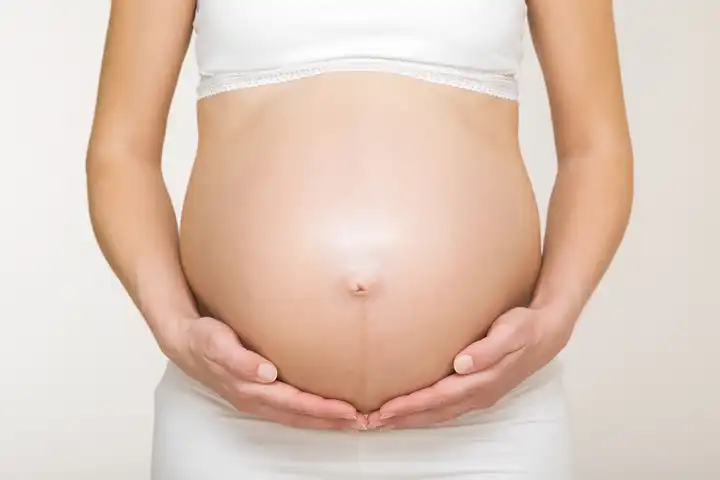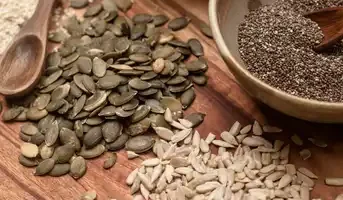Perimenopause and pregnancy might sound like an unlikely pair — but for many women in their late 30s or 40s, the overlap is very real. As hormone levels shift and fertility declines, some are surprised to discover they can still get pregnant. Others are actively trying and wondering if conception is even possible.
So, can you still conceive during perimenopause? The answer is yes — but there’s a lot to consider. In this guide, we’ll explore perimenopause and pregnancy from both a scientific and emotional perspective, including fertility options, health risks, and what to expect at this stage of life. Understanding fertility in perimenopause is crucial for anyone considering pregnancy during this time. The hormonal fluctuations that come with perimenopause don’t just affect your mood or physical health; they also affect your ability to get pregnant. Let’s dive into what perimenopause and pregnancy mean for women in this stage of life.
What Is Perimenopause?
Perimenopause is the natural transition before menopause when the ovaries gradually reduce hormone production. This stage can begin as early as your mid-30s, though it typically starts in your 40s. During perimenopause, symptoms such as hot flashes, irregular periods, and sleep disturbances are common.
But one of the most confusing aspects of this phase is understanding your fertility — and whether perimenopause and pregnancy can truly coexist.
Key Symptoms of Perimenopause:
- Irregular periods: Your menstrual cycle may vary in length, frequency, or flow.
- Hot flashes: Sudden feelings of warmth, often accompanied by sweating.
- Sleep disturbances: Difficulty falling or staying asleep due to hormonal changes.
- Mood changes: Irritability, anxiety, and depression.
- Vaginal dryness: Reduced estrogen can affect the vaginal tissues, causing discomfort during sex.
Though these symptoms often signal the approach of menopause, fertility can remain for years during perimenopause, and many women still conceive.
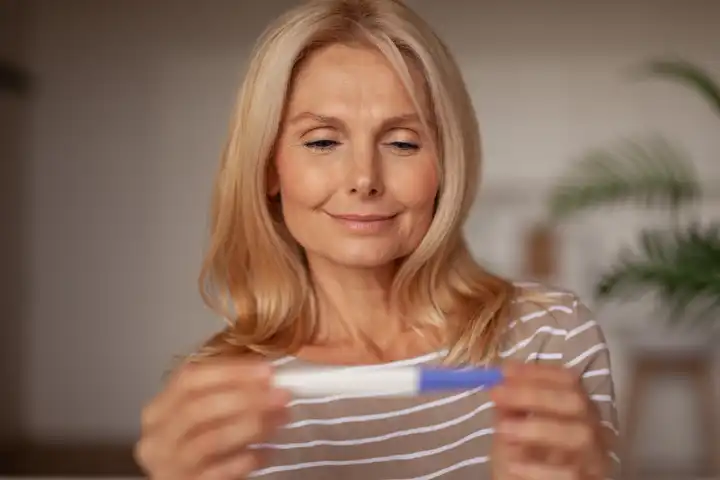
Perimenopause and Pregnancy: Is It Possible?
Yes, it is entirely possible to become pregnant during perimenopause — though it’s less likely. Irregular ovulation can still occur, which means there’s still a window for fertilization. According to Spire Healthcare, women in their 40s may still conceive naturally, though chances drop to around 5% per cycle by age 40.
The American College of Obstetricians and Gynecologists (ACOG) also confirms that pregnancy during perimenopause is possible as long as you are still menstruating — even if infrequently.
“Perimenopause and pregnancy may overlap for several years, which is why contraception is still recommended until menopause is confirmed.” – ACOG
However, it’s important to note that the quality and quantity of eggs decline significantly during this phase, and this is the primary reason fertility becomes more challenging. To understand why fertility declines during perimenopause, we need to take a closer look at the changes occurring in the ovaries, hormones, and reproductive system.
Why Fertility Declines in Perimenopause
One of the most important — and often misunderstood — aspects of perimenopause and pregnancy is the sharp decline in fertility that begins in a woman’s late 30s and accelerates in her 40s. While some women may still conceive naturally during this time, it becomes increasingly difficult, and there are several interconnected reasons for that.
1. Declining Ovarian Reserve
Women are born with all the eggs they’ll ever have. This number naturally declines over time, and by perimenopause, only a small fraction of a woman’s initial egg supply remains. Fewer eggs mean fewer chances for successful ovulation and fertilization. The ovaries may also become less responsive to hormonal signals.
By age 35, women can expect about 1,000 eggs left, and by age 45, this can drop to just 500 to 1,000 eggs (Mayo Clinic).
If you’re noticing changes in your cycle or other early symptoms, you might want to read our guide to early signs of perimenopause to better understand what’s happening in your body.
2. Decreased Egg Quality
Eggs also age — and older eggs are more likely to have chromosomal abnormalities. This increases the risk of miscarriage and genetic conditions like Down syndrome. For example, the chance of a chromosomal abnormality rises from 1 in 1,000 at age 30 to 1 in 35 by age 45 (CDC).
As eggs age, they are more likely to fail to fertilize, or if fertilization occurs, they may not implant successfully in the uterus. This is a major factor in perimenopause and pregnancy challenges.
3. Irregular Hormone Patterns
Perimenopause causes fluctuations in estrogen and progesterone. These hormonal shifts lead to erratic or absent ovulation, making it harder to conceive naturally. Even when ovulation does occur, the timing can be unpredictable, making it more difficult to track fertile windows. Some cycles may not result in ovulation at all, while others may produce a very short window of fertility.
Hormones such as FSH (follicle-stimulating hormone) and LH (luteinizing hormone) rise during this period in an attempt to stimulate the ovaries. However, because the ovaries become less responsive to these hormones, ovulation may not happen regularly.
4. Shortened Luteal Phase
A shorter luteal phase — the time between ovulation and menstruation — can prevent the uterine lining from fully developing. This makes it harder for a fertilized egg to implant and survive, reducing the likelihood of a successful pregnancy. This phase can become too short during perimenopause, often due to hormonal imbalances in progesterone.
5. Uterine and Cervical Changes
Hormonal changes during perimenopause can also affect the uterus and cervix. The endometrium (uterine lining) may be thinner, and cervical mucus may become less hospitable to sperm, creating a more challenging environment for conception.
Cervical mucus, which is essential for sperm survival and transport, may become thicker and less abundant, further reducing the likelihood of successful fertilization. The uterus may also have a reduced ability to support a pregnancy due to these hormonal shifts.
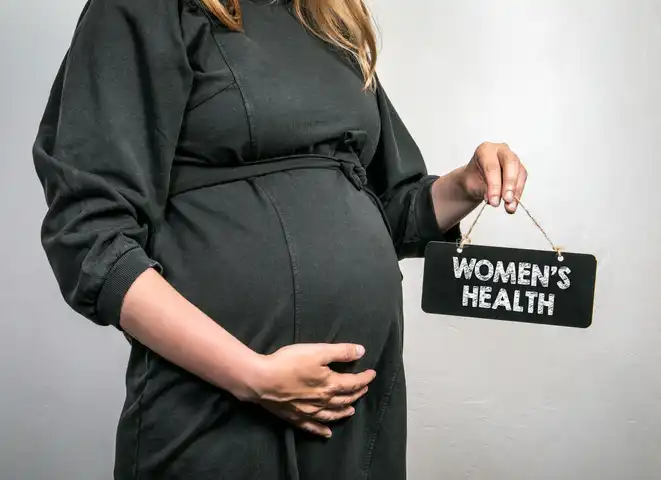
Fertility Options for Perimenopause and Pregnancy
If you’re hoping to get pregnant during perimenopause, several fertility treatments can improve your chances. For women experiencing fertility decline during perimenopause and pregnancy attempts, these treatments can make a significant difference:
- IVF (In Vitro Fertilization), often with donor eggs after age 43
- Ovulation-stimulating medications to improve egg release
- Egg freezing (ideally before mid-40s)
Emerging treatments like PRP (platelet-rich plasma) therapy and melatonin supplementation (Verywell Health)
Some women choose to use egg donors if their own eggs are no longer viable. Advances in reproductive technology have significantly improved success rates for women in perimenopause, but it’s essential to remember that success rates still decline with age.
What Are the Risks of Perimenopause and Pregnancy?
While perimenopause and pregnancy can go hand-in-hand, it’s essential to understand the increased risks involved with later-life pregnancies.
For the Mother:
- Miscarriage: Rates of miscarriage increase as a woman ages, with the highest rates occurring after age 40. Women over 45 have a 50% chance of miscarriage (American Pregnancy Association).
- Gestational diabetes and high blood pressure: These conditions are more common in women over 40 and may lead to complications for both mother and baby.
- Cesarean delivery: The likelihood of needing a C-section increases with maternal age, due to factors such as uterine tone and placenta complications.
- Hormonal complications: Pregnancy during perimenopause may exacerbate existing hormonal imbalances, such as thyroid disorders, which can complicate pregnancy.
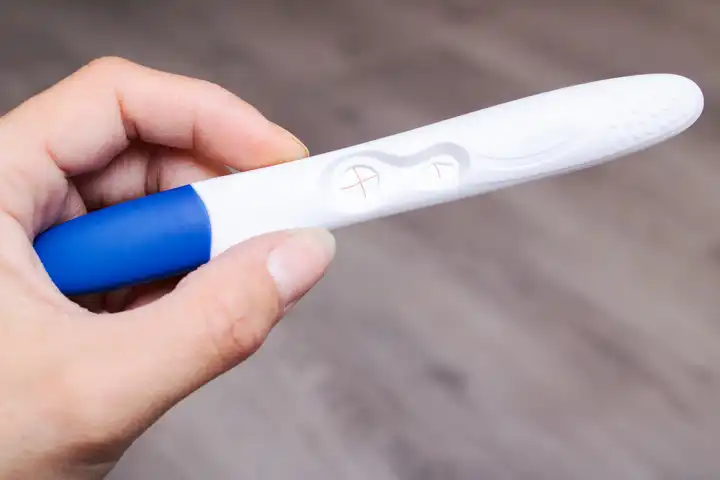
For the Baby:
- Chromosomal conditions: The risk of Down syndrome and other genetic conditions increases with age.
- Preterm birth: Women over 40 are more likely to experience preterm labor.
- Low birth weight: Babies born to mothers in perimenopause may be at higher risk for being born prematurely or with a lower birth weight.
- Higher neonatal care needs: Due to complications associated with maternal age, babies born to older mothers often require more medical attention immediately after birth.
Because of these factors, pregnancy during perimenopause is often considered “high-risk,” requiring specialized prenatal care.
Emotional Health During Perimenopause and Pregnancy
Navigating perimenopause and pregnancy can also be emotionally complex. For some, it brings renewed hope and joy. For others, it raises anxiety or grief over fertility challenges. Actress Naomi Watts has shared how difficult it was to face infertility and perimenopause simultaneously at 36, highlighting the lack of support and awareness (The Australian).
Whether planned or unexpected, pregnancy during perimenopause can trigger a range of emotions — and having a strong support system is key.
When to Seek Medical Advice
Talk to your doctor if:
- You’re actively trying to conceive after 6 months with no success
- You’re unsure whether symptoms are due to perimenopause or pregnancy
- You want to explore fertility treatments
- You experience unusual symptoms like heavy bleeding or skipped periods
Blood tests (like FSH, LH, and AMH) and ultrasounds can give you insights into your fertility status and whether perimenopause is progressing.
Conclusion: What to Know About Perimenopause and Pregnancy
The truth is, perimenopause and pregnancy are more connected than many people think. While natural conception becomes more difficult with age, it’s not impossible. For those hoping to conceive, there are medical options available — and for those not wanting pregnancy, contraception is still necessary until menopause is confirmed.
Understanding your body’s signals and getting guidance from a healthcare provider can help you make empowered, informed choices during this transition. Whether you’re embracing new beginnings or closing a chapter, knowledge is your strongest ally.
